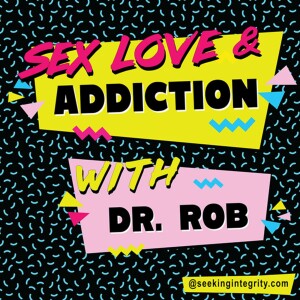
Thursday Sep 26, 2019
The Difference Between Addiction and Physical Dependence with Dr. Jennifer Schneider, M.D., PhD
Dr. Jennifer Schneider, M.D., PhD, is a nationally recognized author and expert in both the management of chronic pain with opioids and in addictive sexual disorders. She returns to the show to talk about the important topic of the difference between addiction and physical dependence, and what each experience looks like in terms of diagnosis and treatment. Dr. Schneider also talks about what physical dependence is, the signs of addiction, and why the two continue to get confused. Dr. Schneider and Rob also discuss how we can manage situations as consumers truly looking for effective pain management, and provide resources where people can learn more and reach out for further help.
TAKEAWAYS:
[4:53] Dr. Schneider defines physical dependence as the drug-producing a change in your body as a response to no longer taking the drug.
[6:48] When you stop taking a drug suddenly, you will not only experience withdrawal symptoms resulting from your physical dependence, but you will likely also resume the symptoms responsible for taking the medication in the first place.
[8:20] Opioids have two different effects. One is that they cause physical dependence, or your body’s response of adapting to them. The other is they cause addiction.
[9:55] There is a misunderstanding when using the term “chemically dependent” and referring only to an addict. Physical dependency happens to everyone that is on an opioid after a few days, and the body adjusts to the prescribed dosage.
[13:42] Dr. Schneider categorizes addiction into these following descriptions:
- The loss of control and inability to stop, or to use the medication as prescribed.
- Continuation to use despite significant and adverse consequences.
- Preoccupation with use of the drugs.
[19:48] Although it is harder than ever to get a prescription for opioids to manage pain, the drug-related overdose deaths are at an all-time high. This is for many reasons, one being that now people are starting to get their drugs on the street, leading to them taking drugs that could be mixed with dangerous and even lethal substances.
[22:14] There have also been some findings that opioids may treat depression and anxiety, and people may find themselves feeling better not only because their pain is treated, but their mood may be better than ever.
[26:10] Tolerance is still a concept that there is much misunderstanding about. With opioids, some side effects people develop a tolerance to, and some people continue to have the same effects. Dr. Schneider shares a personal story on how pain isn’t the same due to the disease progression, not the opioids.
RESOURCES:
Cruise Control: Understanding Sex Addiction in Gay Men
Prodependence: Moving Beyond Codependency
Rob@sexandrelationshiphealing.com
The 5 Most Misunderstood Terms in Pain Medicine
QUOTES:
- “There’s been confusion about the word ‘dependent’.”
- “We need to avoid the word ‘dependent’ because it’s good to rely on a medication that can save your life.”
- “Addiction is about behavior.”
- “There are people who are in genuine pain and now the response is ‘You are just going to have to deal with it’.”
No comments yet. Be the first to say something!